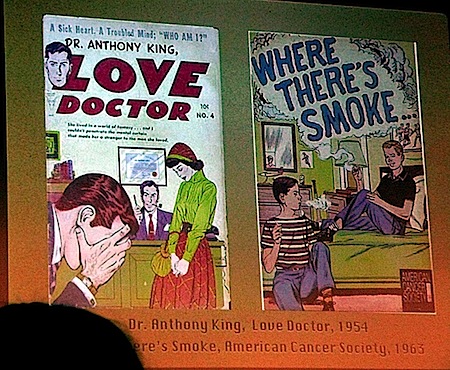Brian Fies (Mom’s Cancer, Whatever Happened to the World of Tomorrow?) writes that he’s involved with an upcoming conference on comics and medicine that is looking for papers:
The second international conference on Graphic Medicine will be held June 9-11, 2011 in Chicago. I was a keynote speaker at the first conference in London last June and thought it was terrific—interesting, fun, and potentially important. The concept is that cartooning and medicine have some interesting overlap that can benefit both. Think of work like Our Cancer Year, Stitches, Epileptic, Cancer Made Me a Shallower Person, my book Mom’s Cancer, and many more.
The organizing committee for the 2011 event has just issued a Call for Papers. We’re looking for presentations that would be right for a lecture, workshop or poster session on the theme “Comics and Medicine: The Sequential Art of Illness.” David Small is a confirmed keynote speaker and we are negotiating with other notable creators to appear as well.
I’ve attached a PDF of the Call for Papers, which is also available online. That website also has information about the 2010 conference. We’d welcome any help you can give us getting the word out and attracting people in the comics world who’d have something valuable to contribute. I’ll keep you informed as our planning progresses.
Phoebe Gloeckner is also scheduled as a speaker. You can read the entire call for entries in the link but here’s part of it to whet your interest:
We invite proposals for scholarly papers (15 minutes), poster presentations, and panel discussions (60 minutes), focused on medicine and comics in any form (e.g., graphic novels, comic strips, graphic pathographies, manga, and/or web comics) on the following—and related—topics:
• graphic pathographies of illness and disability
• the use of comics in medical education
• the use of comics in patient care
• the interface of graphic medicine and other visual arts in popular culture
• ethical implications for using comics to educate the public
•ethical implications of patient representation in comics by healthcare providers
• trends in international use of comics in healthcare settings
• the role of comics in provider/patient communication
• comics as a virtual support group for patients and caregivers
• the use of comics in bioethics discussions and education
Photo taken from Michael Green’s photos from the 2010 event.





